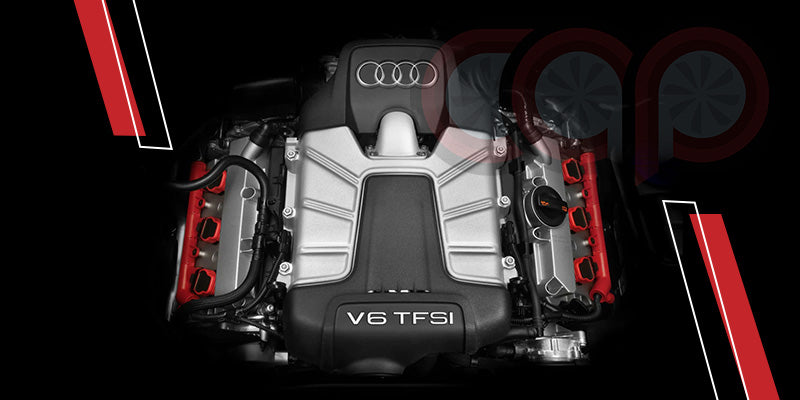
Account
Country
AUDI A8/S8/RS8
AUDI R8
AUDI Q3/SQ3
Audi Q8/SQ8


The Audi 3.0T is an absolute gem for tuners. Thanks to its value dropping over time and the solid support from various modding brands, it's a no-brainer why the 3.0T is a hidden monster. You'll find this engine in a bunch of Audi models from that era, like the S4/S5, A6, A7, and SQ5, offering endless possibilities for mods.
But, just like Achilles had his weak spot, the Audi 3.0T V6 Supercharged engine has its own big problem right out of the box: the catalytic converters, also known as downpipes. The awkward placement of these downpipes leads to a ton of back pressure, which is more trouble than it's worth for your 3.0T's health.
Today, we're diving into the how's and whys, and we've got a solid solution to keep your engine from biting the dust.

Hey Audi lovers, you know how the 3.0T engines have a rep for giving us headaches? Well, that's mostly because of where Audi decided to stick the downpipes – right after the supercharger, in a spot that's a total pain to reach.
We've chatted before about why you might want or not want a downpipe. These ones are too close to the engine, so when you're really gunning it, they get super hot.
Related: Torsen Vs Haldex

Downpipes (or catalytic converters) are meant to soak up nasty gasses to keep the air clean, but in this setup, they end up choking your car's performance.
Check out any car built anywhere in the world, and you'll see the exhaust system is usually one of the first things they upgrade. But with these Audis, the bad placement means the cats overheat, messing up the materials inside. They start to melt and clog up the works, like blocking the holes in a honeycomb. This creates a nasty back pressure on your engine.
Think of it like sprinting full tilt but you can't breathe out properly. That's what's happening here – your engine's trying to go full blast, but it's getting choked up.
Related: Best B9 S5 Mods

Canadian Auto Performance (CAP) kicked off as a brand dedicated to the 3.0T Audi community, bringing to the table what all Audi fans call the world's best 3.0T test pipe. This test pipe is the ultimate answer to the notorious failing 3.0T downpipes, which can cost you a whopping 6k plus installation fees.
Related : Audi S4 Evolution
Being hardcore Audi enthusiasts themselves, here at CAP we tried every test pipe out there but couldn’t find the perfect fit – they all had issues with cracking. That's why they stepped up and crafted what we proudly call the world's best downpipe for the Audi 3.0T platform. And guess what? We have hit a home run – with a track record of zero unhappy customers and no cracking issues, we’re making waves in the Audi world.
Related: The Founding Of Canadian Auto Performance - Test Pipes Origin

You might also be wondering, how do I know I have failing cats on my 3.0T? t's a valid concern, and many in online forums and from customer feedback report issues with their cats after 50,000 to 70,000 miles. This seems especially common in Audis from around 2012-2013, particularly the C7 A6 and A7 models, and pretty much all S4 and S5 models regardless of their production year.
Related: Audi S3 Evolution 1999-2024
This issue largely stems from Audi's use of lower-quality materials during these years, though it did improve post-2013. But regardless of the model year, these cats are prone to failure, potentially leading to serious damage to your car's engine.
While not always directly linked to a clogged catalytic converter, engine misfires can be a contributing factor that leads to an overheated converter. This issue is serious and should be checked by a professional immediately.
A failing catalytic converter struggles to effectively filter out harmful gasses, often resulting in failed emissions tests or unusual, chemical-like odors from the exhaust.
The engine's air intake and exhaust systems need to work smoothly together. A clogged or failing converter can create pressure buildup, affecting this balance and causing noticeable changes in performance, such as rough acceleration.
If the air flow through the engine and exhaust is hindered by a problematic converter, your Audi's fuel efficiency may drop – a significant concern given the typically high fuel economy of these vehicles.
A rattling sound from the catalytic converter might indicate either a clog or damage. While a clog can often be resolved, extensive damage might necessitate a full replacement.
If this light turns on, it's essential to have your Audi checked by a specialist. Although the light could indicate various issues, a clog in the converter can escalate quickly and needs prompt attention.
Additionally, a failing catalytic converter can cause your car to enter 'limp mode' as a protective measure. Restarting the car might temporarily resolve this, but if the converter damage is significant, the problem will likely recur after some time. This intermittent issue is a clear sign that the converter needs attention.
After installing our Canadian Auto Performance test pipes, the transformation in sound is nothing short of spectacular. Audi owners are consistently amazed by the new auditory dimension these pipes add to their vehicles.
For instance, the 2014 Audi A7 now roars with a delightful blend of deep rumble and crisp rasp at 2-3k rpm, truly coming alive at full throttle. B8 S4 drivers are reveling in the aggressive, robust noise that underscores their car’s enhanced performance.
Meanwhile, Audi Q5 enthusiasts describe the post-installation sound as akin to 'a million angry, buzzing bees' – a dramatic, head-turning change. Even those with stock exhaust systems notice a significant upgrade; a 2012 Audi A6, for example, now starts with a throaty, menacing growl that smoothly transitions into a more subdued, near-stock sound during regular driving, only to unleash a ferocious howl when pushed to the limit. These test pipes aren't just about performance gains; they're about an auditory experience that excites and satisfies.
Related: Audi A6 C7 & C7.5 3.0t Mod List
Test pipes are essentially straight pipes that serve as replacements for your vehicle's catalytic converter.
Installing test pipes can significantly enhance your vehicle's performance by reducing exhaust backpressure, leading to increased horsepower and improved engine efficiency.
Yes, in many regions, test pipes are illegal for street use because they replace the catalytic converter, a key component for reducing vehicle emissions to meet environmental regulations. Their use is typically restricted to racing or off-road vehicles.
The horsepower increase from installing test pipes can vary, but on average, you might see an improvement of about 5 to 10 horsepower. This depends on the vehicle and other modifications that might be in place.
For the 3.0T platform specifically, installing test pipes can notably increase torque across a wide RPM range, from 2,000 to 7,200 RPM. Depending on other modifications you have on your vehicle, you can expect a horsepower increase ranging from 10 to 80 HP. This makes test pipes a particularly effective upgrade for those looking to enhance their vehicle's performance.
Related: Audi S6 Evolution